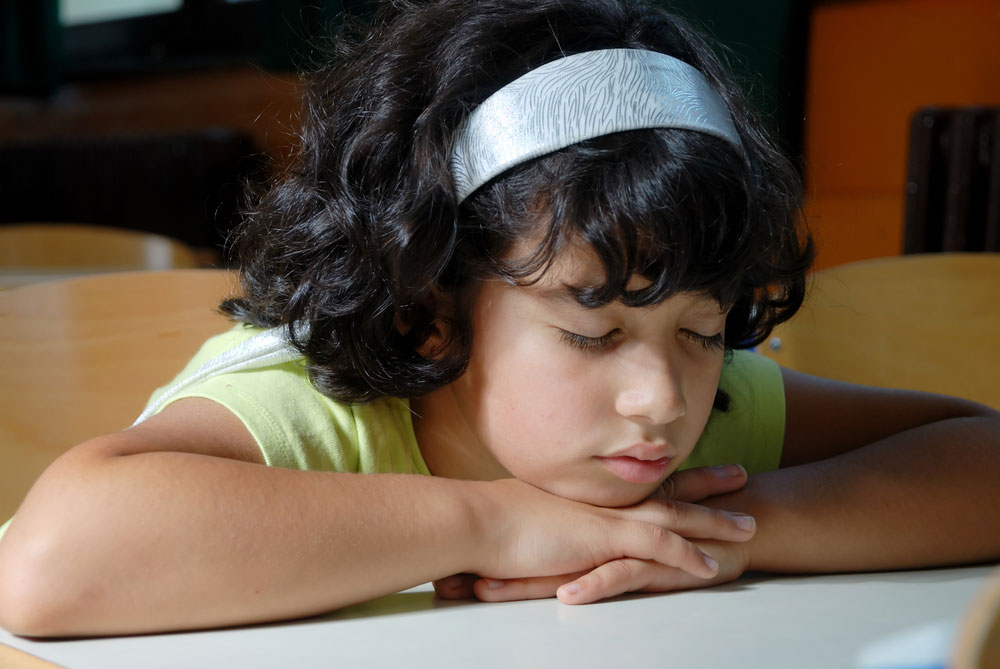Children who frequently catch a cold, whose concentration levels are low and academic performance has dipped and who wet beds at six or seven years of age might have sleep disorder, doctors say.
Sleep disorder is on the rise among schoolchildren and parents should look out for telltale signs — bed-wetting and snoring and sleeping with the mouth open, indicative of airways narrowing and resulting in low oxygen supply to the brain.
The condition known as sleep apnoea — an obstruction to air entering the body — is more common in adults but increasingly children are developing the disorder, doctors said at a meet on Tuesday. The trigger behind this is obesity on the one hand and enlarged adenoids or the tonsils on the other.
“When children become obese, there is deposition of adipose or fat tissues in the neck, tongue and the palate,” Uttam Agarwal, a city-based ENT surgeon who specialises in sleep disorder, said. “When muscles relax during sleep, the airways get choked. As air enters through small openings a whistling sound is produced. The same thing happens when the tonsils or adenoids are enlarged.”
Agarwal was speaking at a press conference on sleep disorders on Tuesday, ahead of World Sleep Day on Friday.
People, including children, suffering from sleep apnoea wake up with a start, gasping for air, because of insufficient oxygen in the blood, he said.
“A tremendous amount of stress is generated in the body when a child is on the verge of choking and many hormones get released. In many cases, children wet the bed. Also, as children wake up repeatedly at night and have disturbed sleep, they feel sleepy throughout the day and are unable to concentrate on studies,” psychiatrist Sourav Das, who was present at the meet, said.
In case of inflamed tonsils or adenoids, they are generally surgically removed. Obese children are prescribed lifestyle changes to lose weight and given a CPAP mask that aids breathing during sleep.
Some doctors, however, said everyone cannot tolerate these masks during sleep.
Agarwal cited the example of a seven-year-old girl whose bed-wetting episodes stopped the very next day after her adenoids were removed. Results take time for obese children, subject to lifestyle changes like cutting down on junk food and maintaining healthy sleep hours.
Das, the coordinator of the World Sleep Society for eastern India, said there was no Indian data on the number of people suffering from sleep apnoea but from experience doctors could say numbers were increasing.
“While sedentary lifestyle and junk food is held responsible for the increase in sleep apnoea among children, the other trigger could be pollution that leads to enlarged tonsils but there are no studies to substantiate this,” Das said.
In adults, sleep apnoea could lead to heart attacks, brain strokes and diabetes, doctors said. There is no threat to children but if left untreated, they would be susceptible to the diseases as young adults, Das said.










